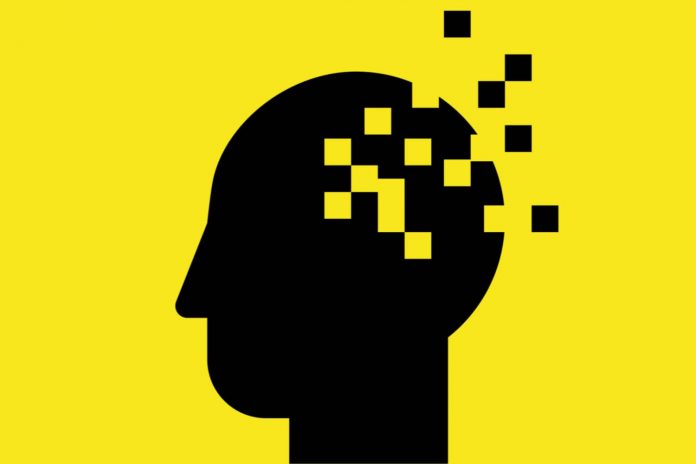Dementia is a disease that affects older people in many ways. While the most common type of dementia is Alzheimer’s there are many different types of dementia that you may not be as familiar with. The disease carries different symptoms that become apparent in certain stages of the illness. Anyone wondering how many types of dementia are there can easily find out.
10 Types of Dementia

Vascular Dementia
After Alzheimer’s Vascular is the second most common type of this debilitating disease. This condition can occur when there is a lack of blood flowing into an individual’s brain. When the blood flow to a person’s brain is not what it should be it results in the brain cells being deprived of needed nutrients as well as the oxygen that fuels the brain cells.
It is not unusual for an individual to be diagnosed with Vascular Dementia after they have suffered a stroke or if they have hypertension and/or diabetes. It is possible for an individual to suffer from both vascular disease and Alzheimer’s; which is referred to as mixed dementia.
Lewy Body Disease
Lewy Body Disease is another type of dementia people can suffer from. A lewy body is a deposit of protein into the body where something is wrong with the protein. These deposits are present in the nerve cells that help make up an individual’s brain stem.
They prevent an individual’s brain from functioning normally and contribute to changes in their behavior and their cognitive abilities. In some patients tremors can result from this type of the disease. At this time it cannot be reversed or cured.
Parkinson’s disease
A form of Parkinson’s disease can be caused by dementia in some cases. In any patient who suffers from both they are considered to have a lewy body form of dementia. Some of the signs of this form of the disease include problems with speech and memory as well as stiffness of muscles. A person’s judgment and their reasoning abilities are negatively impacted by this.
Front temporal
One very uncommon type of this disease is known as Front temporal. Though Fronto temporal disease itself is not uncommon it is uncommon, but possible, in patients that suffer from dementia. This type is also referred to as Pick’s disease.
An individual who suffers from this condition has damaged brain cells contained in both their temporal and frontal lobes. Patients who suffer from this type of the disease often see drastic changes in their personality. These changes most often occur before the typical changes in speech and memory.
CJD/ Creutzfeldt – Jacob
Creutzfeldt – Jacob Dementia, CJD for short, is more commonly called mad cow disease. This neurological disorder is experienced by only one in 100 people. A cure for this type of the disease has not been found. In a patient that suffers from CJD there are viruses present that prevent their brain from being able to function as it was intended to.
There is a rapid decline in the mental state of any patient that suffers from CJD that typically happens in a matter of months. CJD patients experience symptoms such as a lack of coordination, memory and speech problems, twitching, muscle stiffness and general confusion. Some patients will also suffer from hallucinations and blurry vision as well.
Normal Pressure Hydrocephalus
Hydrocephalus occurs when there is a buildup of spinal fluid in the cavities of one’s brain. Since the fluid cannot drain as it should be able to it puts unnecessary pressure on one’s brain.
This can destroy the brain’s ability to function properly. Patients suffering from dementia brought on by normal pressure Hydrocephalus suffer from both cognitive and physical problems.
The cognitive problems include impairment of memory and speech as well as an individual’s ability to solve problems. The physical problems caused by this type of the disease include issues with bladder control and an inability to maintain their balance as well as their ability to move around safely.
Huntington’s disease
Huntington’s disease is genetic and causes the typical problems dementia is often responsible for, such as slurred speech, mood swings, depression an impaired sense of judgment. A patient’s body and specifically their face often jerk uncontrollably as a result of the disease. They also often suffer from hallucinations and delusions.
Wernicke – Korsakoff Syndrome
Wernicke – Korsakoff Syndrome is seen in many alcoholics and patients who have had cancer that spread through their body. It can also be present in anyone who suffers from malnutrition. A lack of vitamin B1 in an individual’s body can cause this disease. It is also associated with thyroid levels that are abnormally high.
Diuretic therapy used in a patient suffering from congestive heart failure can also cause the onset of this disease. Though the symptoms are less severe than other forms of the disease, relevant symptoms include damage to one’s short term memory as well as general confusion and large periods of time or events that a patient can’t recall. Patients suffering from this disease can also experience hallucinations at times.
Mild Cognitive Impairment
In a patient suffering from any number of illnesses mild cognitive impairment is possible. This type of the disease is one that patients can often tell is causing their health to decline. The symptoms of this type of the disease do not generally completely disrupt one’s life.
Symptoms of mild cognitive impairment include problems with speech and judgment as well as loss of memory. Since patients are generally aware when they are suffering from this illness it can lead to depression, apathy in an emotional sense, aggression and anxiety.
Diagnosis
In order to diagnose any type of dementia doctors must review a patient’s history of medication, their family history and their medical records. Patients being evaluated for this disease are screened for depression and conditions related to the disease, such as:
- kidney disease
- thyroid disease
- liver disease
- Diabetes
- Anemia
- pulmonary issues
- cardiovascular issues
- vitamin deficiencies
Patients who are suspected of having this disease are also screened for nutrition and substance abuse issues as many of them end up drinking, abusing drugs and/or not eating properly. In addition to the screenings patients must have a physical exam and have blood drawn by a doctor in order to help determine if they are suffering from a specific type of dementia.
Specializations
The best way to get a proper diagnosis of the disease is to get it from a doctor who has experience in finding and treating the disease in patients. As there is no specific individual test in place to diagnose dementia doctors must run many different kinds of tests in order to make a diagnosis. When it comes to diagnosing this disease there is no underlying cause of it.
Testing
To determine what is the type of dementia a patient is suffering from doctors must perform a Mini Mental State Evaluation test. During this test patients must answer questions such as the location they are currently at as well as the current time and date they are meeting with the doctor. It also involves testing both motor skills and comprehensive skills in a patient.
Patients are often asked to recall a list of three specific words they were told by the doctor in recent minutes. They are given an activity to do after being told the words and are asked what the words are once the activities are done.
Detecting this disease in patients allows doctors to measure how senile one really is. They reach this conclusion through a series of physical and mental tasks designed to determine a patient’s state of mind.
When it comes to diagnosing this disease in patients the tests administered are 90% accurate in detecting the presence of dementia. Doctors are always studying the disease in the hopes of finding results.















